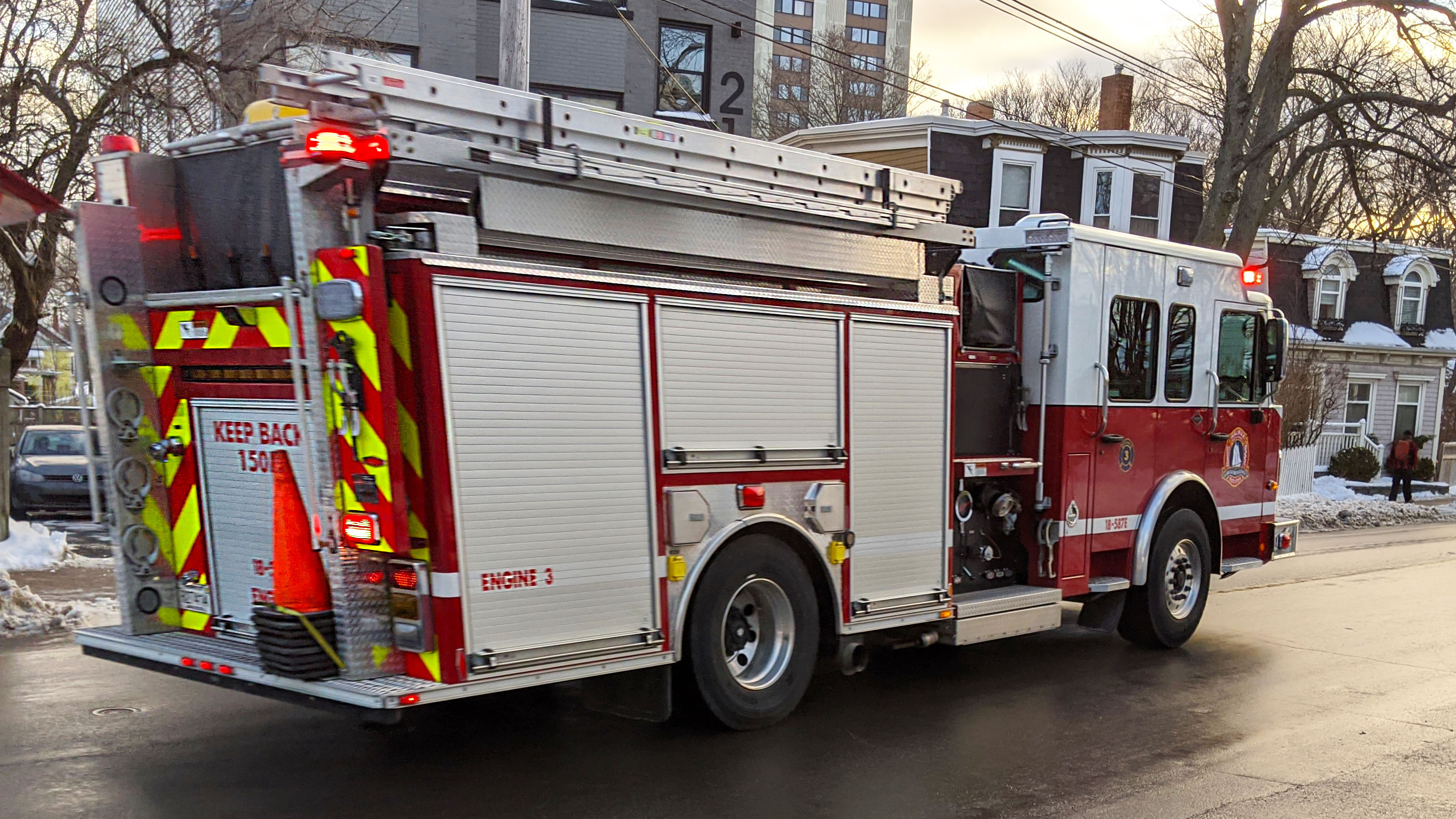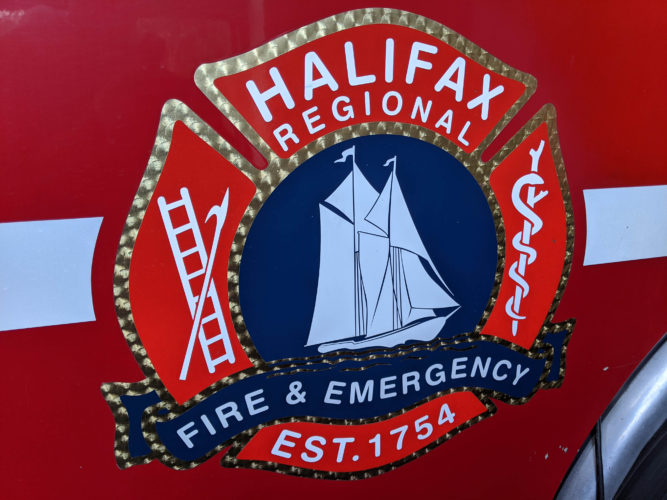Halifax Fire making changes to improve response times in rural HRM areas
New protocol is scheduled to be in place by the end of February

caption
A fire engine speeds down Windsor Street in Halifax with its lights flashing.Halifax Regional Fire and Emergency (HRFE) is introducing a new dispatching practice to improve response times in rural communities across the municipality.
The new “supplementary response” protocol will send career firefighters from stations that run 24 hours a day, every day of the week, to assist volunteer firefighters in neighbouring areas.
Previously, many of these stations would aid volunteers during regular daytime hours, between 7 a.m. and 5:30 p.m. Monday to Friday. Soon, they’ll assist at any time of the day.
“The rationale behind a supplementary response is to ensure that we have, basically, the fastest, closest fire truck responding to calls,” explained Corey Beals, Halifax Fire’s assistant chief of rural operations. “We get somebody on the scene of a call as soon as possible in areas where we have a large response zone covered by volunteers.” Related stories
Hammonds Plains was the first community in the Halifax Regional Municipality to test the new protocol in December of 2018. The community was aided by nearby Sackville and Bedford stations. Beals said that the test showed the protocol was effective.
The Halifax 2019-2020 budget added 10 crew members to station 45 in Fall River on Jan. 6. The additions enabled station 45 to respond to calls 24 hours a day, seven days a week.
Despite the change, the computer program at dispatch had not yet registered station 45 as a 24-hour station. The crew was only dispatched to assist during daytime shifts.
Joe Triff, vice-president of Halifax Professional Firefighters Association, called it an “oversight.”
“No crew of firefighters wants to be sitting in a station when they could be out helping someone in crisis,” Triff said in an email on Jan. 20. “We believe the most effective response protocol for the community is to have staff at station 45 automatically responding to calls in their neighbouring districts that don’t have staffing.”
Triff said he had been communicating with Halifax Fire to implement the change as soon as possible. The oversight was addressed.

caption
HRFE is planning to roll our the protocol to all stations with 24 hour coverage.As of Jan. 24, station 45 provides supplementary response to nearby volunteer firefighters around the clock, supporting areas like Wellington, Waverley, and Grand Lake.
While Fall River was going to see the change along with the other stations, Beals says the change was rolled out promptly because of a heightened risk in the area. He cited low firefighting resources in neighbouring areas, and noted that much of the airport was under station 45’s jurisdiction.
A vehicle fire on the morning of Jan. 18 in Wellington revealed the importance of implementing the new protocol in Fall River, and communities like it.
Wellington’s volunteer fire crew took just under 20 minutes to get to the fire after being dispatched.
Their response was nearly on par for the structure fire response time targets outlined in Halifax Fire’s review in 2018, which sets a goal of 16 minutes from dispatch to arrival for rural volunteer crews, and six and a half minutes for 24 hour career-staffed stations.
Fall River’s fire crew wasn’t originally dispatched. The station heard of the fire over the radio and communicated with dispatch to attend. It took less than 10 minutes for them to prepare and arrive on scene, about half the time it took Wellington’s crew.
Beals noted the difference is largely because 24 hour crews are already at the station, while volunteer crews are not always immediately available.
“We cannot guarantee a response in the volunteer sector. It doesn’t matter how many volunteers they have, we still can’t guarantee a response because they’re not at the station. They have to be home, they have to be ready, they have to be able to respond,” Beals explained.
Career fire crews from towns like Fall River or Spryfield will attend to all calls within a 20 minute access range. Beyond that length of time, responses would not be effective. More severe calls, like house fires, will bring career firefighters to the scene regardless of distance, unless the volunteer firefighters call them off.
About the author
Dayne Patterson
Dayne Patterson is a recent graduate student at the University of King's College. He's reported from all over Canada, including B.C., Alberta,...

J
James brown